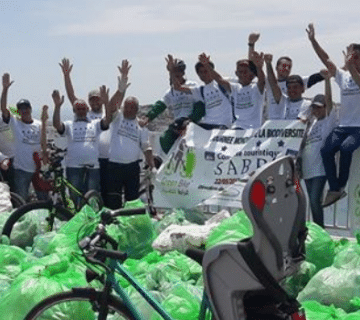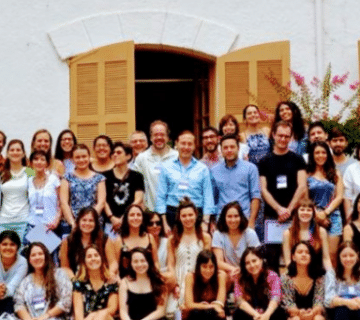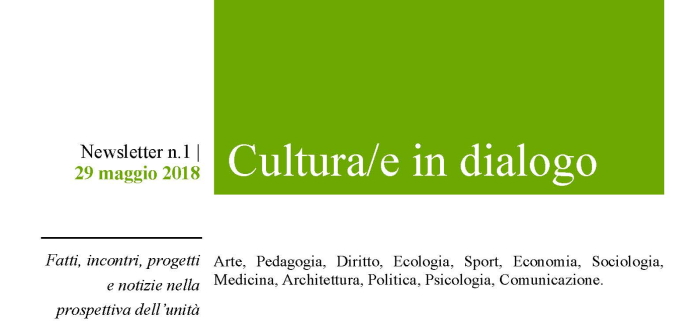Fontem – Cameroon: A Laboratory of Human Relationships
A sociological analysis of the political, anthropological and spiritual evolution
of the Bangwa people:
from near extinction to a model of progress
Presentation of the first Italian translation of the classic volume
“The ways and power of love” by Pitirim Sorokin
published by Città Nuova
Castelgandolfo (Rome, Italy)
February 12, 2004
Africa – A forty-year experience lived out within the heart of a forest in Cameroon is the object of a particularly interesting sociological study presented at the First International Congress on Sociology, promoted by Social-One, the Focolare Movement’s expression in the sociological field. The above-mentioned theme was one of the most significant moments of the Congress, held at the Mariapolis Center of Castelgandolfo (Rome) on Feb. 11-13, under the title: “Social relationships and fraternity: a paradox or a sustainable model? From the perspective of the social sciences.”
The study analyzes the political, anthropological and spiritual evolution of an African tribe, the Bangwa, from the stage of near-extinction to its present development. It points out that such a development has taken place under the influence of the Bangwa people’s encounter with a modern charism, that of unity, brought by the doctors, teachers, and young European focolarini who went to Fontem in the early 1960s to bring aid. The study also analyzes the effect of the encounter with the Bangwas on the Europeans.
The theme was introduced by Belgian sociologist, Prof. Bennie Callebaut, and developed by scholars of Bangwa origin, such as Prof. Martin Nkafu, professor of Philosophy of Cultures at the Pontifical Urbanian and Lateran Universities, as well as by other university professors now resident in the United States and Great Britain. An essential part of the presentation were the experiences shared by the first focolarini who went to Fontem, such as Dr. Lucio Dal Soglio, as well as by those who are currently working there. A typically African celebration was held in the evening, with the participation of African youth from Kenya, Tanzania, Madagascar, Angola, South Africa, Uganda, Congo, and of course, Cameroon.
Another significant part of the Congress was the presentation of the first Italian translation, published by Città Nuova, of the book “The Ways and Power of Love,” written by Pitirim Sorokin, a Russian sociologist who emigrated to the United States. Considered a sociological classic, the volume analyzes the causes and effects, as well as the human and universal significance of the creative and therapeutic powers inherent in selfless love. Speakers on the subject included such distinguished sociologists as professors Raffaele Rauty, a specialist in American sociology; Arturo Parisi of the University of Bologna and Michele Colasanta, Director of the Faculty of Sociology of the Catholic University of Milan.
The Congress opened on Feb. 11 with a message from Chiara Lubich. A presentation entitled “Challenges of a complex and globalized society” was then be offered by Prof. Vincenzo Zani, followed by experiences of life shared by a social worker from the Ministry of Social Politics of Argentina; a member of the La Pira International Cultural and Interreligious Center of Florence, Italy; a doctor working in an Italian drug rehabilitation community; and representatives of the families’ international center of the Focolare’s little town, Loppiano (Incisa-Valdarno, Florence).
On the second day, Saturday, Brazilian sociologist, Vera Araujo, presented the main theme of the Congress: “Social relationships and fraternity: a paradox or a sustainable model?”.
The theme on social relations is very timely – The growing interest in the relational aspect and the challenges of globalization call for a better understanding of the complex and multiple relationships existing in today’s world. Social scientists are at work to formulate a theoretical development in their discipline. There is a general demand for new models, new research strategies, new schemes of application, which would highlight not only conflictual realities but positive and constructive new phenomena as well.
Congress objectives – From discussions and dialogue on the studies and achievements gained so far by the social sciences, the Congress aims to bring to light new perspectives by proposing fraternity as a conceptual category that could form the basis of a new scientific paradigm.
The proposal of “Social One” –“Social One” brings together professionals and students involved in the field of social services throughout the world, and it is precisely towards verifying the above-mentioned proposal that their efforts are geared. Through the dynamics of dialogue and inspired by the cultural heritage which is drawn from the vital experience of universal brotherhood made by the Focolare Movement and its foundress, Chiara Lubich, Social One brings to light ideas, guidelines, research proposals, analyses and interpretations of social realities and social action projects which highlight the new concepts and new methodologies.
For further information:
Focolare Information Service – Carla Cotignoli – tel. 39-6-947989 – 348.856.33.47


 Italiano
Italiano Español
Español Français
Français Português
Português


